“I didn’t see that coming” – how often have we heard or said it? When I say it, it’s typically in response to something I didn’t anticipate that has thwarted my plans. When I hear others say it, I (for shame) judge and wonder, maybe they should have seen it coming? And if they had, why are they still as upset by it?
For years I’ve been told the best advice I’ve ever given was to “not be surprised by the expected.” I had learned that when I actually took a few moments to think through the range of possibilities of what will likely happen, or how people will likely react to a given event or behaviors, When I did I found I could anticipate them and, if not prepare for them, at least not be surprised.
To be clear - this isn’t the same as “hope for the best, prepare for the worst”. That’s actually ineffective as it raises the emotional stakes, sub-optimizes effort and shorts the opportunity for fast follow up on success. “Hope for the best, prepare for the worst” is a platitude that works against itself and the person holding it.
Not being surprised by the expected, on the other hand, is a personal discipline that allows the practitioner to better plan for and respond to what happens in life. It can be applied to most situations – personal or professional. It provides the greatest benefit in matters involving people or plans. Let’s define “surprise” as our level of emotional response and “expected” as the range of other’s potential responses rather than one specific response.
1. Intellectually expect from the realistic range of possibilities – beyond what you predict or hope
2. Prepare yourself emotionally for that range to avoid surprise
Don’t be surprised – where we are blind is often where we don’t look. Not being surprised begins when we take the time to anticipate the range of possible responses from others and accept that any could happen. Intellectual anticipation of others’ responses enables our emotional stability in response to them. Effective anticipation involves not judging possible responses but simply accepting that they are possible.
To anticipate for a range is not to fully prepare for each possibility in the range. Preparing for all possible responses is not efficient and rarely possible. The point of anticipating possible responses is not to prepare to deal with all of them, but to avoid surprise from any of them. Not being surprised has several benefits starting with staying centered in the face of challenge. Staying centered enables one to respond faster and more effectively to the issue at hand.
Responding more effectively is its own reward – challenge met, crisis averted, problem solved. On top of that, when not surprised by the expected, you have managed to perform with less stress on yourself and those around you. Beyond that, when you habitually respond more effectively to challenges with less stress, you are accurately perceived by your immediate circles as being capable of doing so. This perception enhances your credibility as being effective and desirable to be around. As judge-y as it sounds… the good news is that you get more challenges directed your way and you draw people to your emotional stability. The bad news, of course, is the same.
So, Don’t Be Surprised By the Expected by:
1. Anticipating the range of possible actions, reactions or responses others may have to the situation - “the expected”.
2. Accepting that all are possible even as you prepare for the more likely. Don’t be “surprised” by anything in the range.
3. Noticing how you react to situations when you practice #1 and #2.
4. Noticing how others react to you when you practice #3.
5. Noticing over time how you are more effective with regular practice.
Many people I work with will smile, grimace, or finish my sentence when I say, “Don’t be surprised by the expected.” I say it aloud mostly to remind myself that when we anticipate and accept what could happen, we can more effectively respond to and deal with what does happen. Practicing aloud makes it more a discipline than a technique.
Sometimes the truly unexpected does happen – and you are surprised and you are stressed. That happens. But even then, don’t’ be surprised by the expected of being less stressed and more effective by virtue of practicing the discipline over time.


